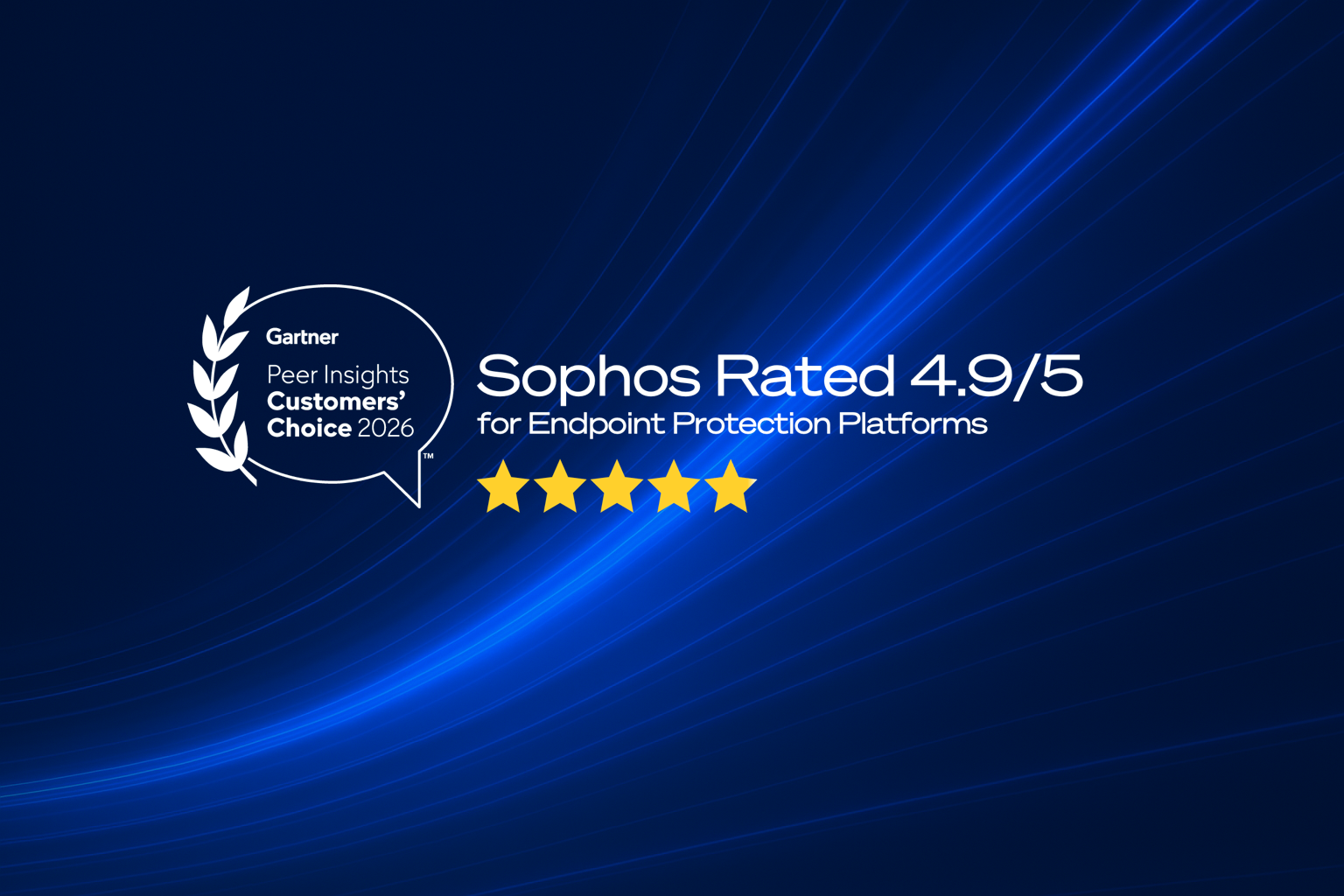
What is a virtual private network (VPN)?
About VPNs
A VPN, or Virtual Private Network, is a cybersecurity technology that allows you to create a secure and encrypted connection over the public internation, which is less secure. VPNs serve several purposes, including enhancing online privacy, data security and protecting access to restricted or sensitive content. Organizations supporting remote workers rely on Virtual Private Networks to strengthen endpoint security and data breach prevention.
How Does a VPN Work?
Businesses often use VPNs to allow employees to securely access company resources, such as intranet websites, files, or applications, from remote locations.
Here’s a summary of how a VPN works:
- Data Encryption: When your users connect to a VPN, their device creates an encrypted tunnel to the VPN server. This encryption ensures that your internet traffic is secure and cannot be intercepted by third parties, including hackers, ISPs (Internet Service Providers), or government agencies.
- Masking Your IP Address: Your ISP assigns your device an IP address. A VPN server replaces your real IP address with its own IP address. IP Address masking makes it difficult for websites and online services to track your activities.
- Tunneling Protocols: As mentioned above, VPNs use various tunneling protocols to establish and manage the encrypted connection. Common protocols include OpenVPN, L2TP/IPsec, and IKEv2/IPsec. These protocols determine how data is transmitted and encrypted within the secure VPN tunnel.
- Server Location: VPN providers operate servers in multiple locations around the world. When you connect to a VPN, you can select a server from a list provided by your VPN service. The server's location affects your online experience.
- Data Routing: Your internet traffic is routed through a VPN server, which helps keep your actual location private to third parties.
- Bypassing Restrictions: VPNs can help bypass geo-restrictions imposed by websites, streaming services, or governments. For example, if a website or streaming service is blocked, a VPN can security connect to a server in a different country where access is allowed.
- Providing Security and Anonymity: VPNs also provide security benefits, such as protecting your data from hackers when using unsecured Wi-Fi networks. They can also offer anonymity by preventing websites from tracking your IP address and online activities.
- Client-Based: To use a VPN, you need a VPN client application or software. Most VPN providers offer dedicated apps for various devices and operating systems. You typically install the client, log in with your credentials, and connect to the VPN server of your choice.
What Are the Benefits of VPNs?
Here are the top benefits of VPNs:
Data Traffic Security: VPNs use encryption protocols to secure data traffic, ensuring that your online activities, such as web browsing, file transfers, or online messaging, remain confidential and protected from unauthorized access.
IP Address Privacy: VPNs can mask your IP address and location by routing your internet traffic through servers in different regions or countries. This helps protect your online privacy and anonymity by making it harder for malicious websites and online services to track your real-world location.
Public Wi-Fi Security: When using a public Wi-Fi network, which is often less secure, a VPN adds an extra layer of security. It does this by encrypting your data traffic and making it more difficult for hackers to intercept your information.
Enhanced Online Anonymity: VPNs can help protect your online identity by preventing websites and online services from tracking your browsing habits, which can be used for targeted advertising.
How Do VPNs Support Remote Workers?
If your business has hybrid or remote workers, Virtual Private Networks (VPNs) are crucial in supporting them by providing safe access from anywhere. Here are some of the many ways VPNs support remote workers:
Enhanced Cybersecurity: VPNs encrypt data transmitted between the remote worker's device and the corporate network. This encryption ensures that sensitive information, such as login credentials and company data, remains protected from potential eavesdropping or interception by cyber criminals.
Secure Remote Access to Corporate Resources: Remote workers can access company resources, such as files, applications, and intranets, securely from anywhere with an internet connection. VPNs enable remote workers to connect to your corporate network as though they were physically in the office.
Bypassing Geographical Restrictions: Depending on where they’re working, some remote workers may need access to geo-restricted resources, such as certain websites, social media sites, or services only accessible from specific regions. VPNs can help remote workers bypass these restrictions by routing their internet traffic through servers in different geographic locations.
Extra Layer Protection for Public Wi-Fi: Remote workers often use public Wi-Fi networks, which are inherently less secure. VPNs encrypt the data transmitted over these networks, making it difficult for hackers to intercept or compromise the data.
User Privacy: VPNs mask the remote worker's IP address and location. This helps protect their online privacy and prevents hackers, malicious websites and advertisers from tracking their online activities.
Regulatory Compliance: Many industries and organizations have strict compliance requirements, particularly regarding data security and privacy. For companies who must comply with GDPR or other data privacy regulations, VPNs help remote workers adhere to these regulations by ensuring that data is transmitted securely.
Remote Collaboration: VPNs enable remote workers to collaborate securely with colleagues, accessing shared documents and using company communication tools without compromising data integrity.
Cost Savings: For organizations, VPNs reduces the costs associated with maintaining a physical office. They allow businesses to hire talent from around the world, eliminating the need for physical office space and reducing overhead costs.
Scalability: VPNs can quickly scale to accommodate a growing remote workforce. Organizations can add more VPN connections and server capacity as needed.
Traffic Optimization: Some advanced VPN solutions offer traffic optimization features, prioritizing essential applications and data traffic and ensuring a consistent, high-quality user experience for remote workers.
Device Agnosticism: VPNs work across various devices and operating systems, including computers, smartphones, and tablets. This flexibility allows remote workers to use their preferred devices while maintaining security.
While VPNs are a valuable tool for remote workers, organizations must carefully choose and configure their VPN solutions to ensure they meet security and compliance requirements. Additionally, remote workers should be educated on best practices for using VPNs to maximize their benefits while minimizing potential risks.
Are There Different Types of VPNs?
Yes, there are different types of Virtual Private Networks (VPNs), each with its own set of features, protocols, and use cases. The main types of VPNs include:
- Remote Access VPN: These are designed for individual users or devices to connect securely to a corporate network over the internet. Remote workers can access company resources such as files, email, and applications while maintaining data security. SSL/TLS and IPsec are common protocols used for remote access VPNs.
- Site-to-Site VPN: Site-to-site VPNs are used to securely connect entire networks or multiple locations (e.g., branch offices) over the internet. They create a secure tunnel between two or more physical locations, allowing them to share resources and data. IPsec, GRE, and MPLS are commonly used protocols for site-to-site VPNs.
- SSL VPN: Secure Socket Layer (SSL) VPNs use SSL/TLS protocols to provide secure remote access to web-based applications and services. These are often used for secure remote access to corporate intranets, webmail, and other web applications without client software installation.
- IPsec VPN: Internet Protocol Security (IPsec) is a protocol for securing internet communication. It can be used in both remote access and site-to-site VPN configurations. IPsec provides strong encryption and authentication.
- PPTP, L2TP, and L2TP/IPsec: These older VPN protocols offer varying levels of security and performance. PPTP (Point-to-Point Tunneling Protocol) is less secure and less commonly used today. L2TP (Layer 2 Tunneling Protocol) and L2TP/IPsec combine L2TP with IPsec for improved security.
- WireGuard: WireGuard is a relatively new and lightweight VPN protocol known for its simplicity and performance. It aims to be faster and more secure than older protocols like OpenVPN and IPsec.
- OpenVPN: OpenVPN is an open-source VPN protocol that is highly configurable and widely used for its security and flexibility. It is often the preferred choice for setting up custom VPN solutions.
- Mobile VPN: These VPNs are designed specifically for mobile devices, such as smartphones and tablets. They provide secure connectivity for users on the go, ensuring data privacy and security when using public Wi-Fi networks.
- Dedicated VPN Services: Numerous commercial VPN service providers offer VPN services for individuals and organizations. These services provide user-friendly apps, global server locations, and security features.
- Peer-to-Peer (P2P) VPN: P2P VPNs allow users to create a decentralized network where each user acts as a node, contributing bandwidth and resources. These are often used for privacy and censorship circumvention.
- Mesh VPN: Mesh VPNs connect multiple devices or nodes in a peer-to-peer manner, creating a decentralized and resilient network. They are used in scenarios where traditional infrastructure-based networks may not be available or practical.
The Final Word on VPNs
While VPNs offer many benefits, their security and privacy depend on the VPN service's trustworthiness. Not all VPN providers are equal, so it's essential to choose a reputable and well-reviewed VPN service that follows strong privacy and security practices.
The choice of VPN type depends on your specific use case, security requirements, and the devices or networks you need to connect. It's essential to choose the right VPN type and configure it correctly to ensure the privacy and security of your data.
VPNs provide enhanced privacy and security. However, the effectiveness of a VPN service depends on the provider's policies, the encryption protocols used, and the trustworthiness of the provider. Additionally, using a VPN may slightly reduce your internet speed because of the encryption and routing processes involved. Therefore, choosing a reputable VPN service that aligns with your specific needs and priorities is essential.
Sophos Zero Trust Network Access (ZTNA) may be a suitable replacement for VPN technologies in your organization. To learn more about how Sophos ZTNA can protect your remote and hybrid workers, get in touch with a Sophos expert today.
Secure Remote Workers with ZTNA
Related security topic: What is cybersecurity as a service?
.svg?width=185&quality=80&format=auto&cache=true&immutable=true&cache-control=max-age%3D31536000)


.svg?width=13&quality=80&format=auto&cache=true&immutable=true&cache-control=max-age%3D31536000)



